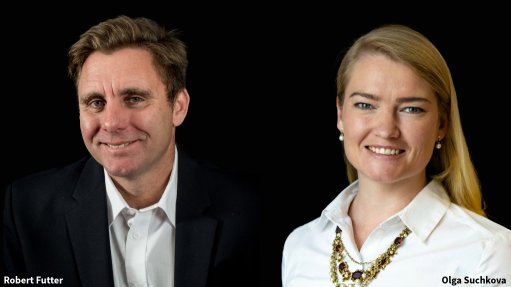Policy uncertainty index reaches new record-high, 2023 GDP outlook weak
The North-West University (NWU) Business School's Policy Uncertainty Index (PUI) increased to 76.2 in the second quarter – a new historical high after its previous record of 71.7 in the first quarter of the year.
NWU Business School's Professor Raymond Parsons says the gross domestic product (GDP) growth outlook for this year remains weak, with most forecasts for growth of only 0.1% to 0.3% for the year as a whole, with downside risks.
Investment and hiring plans may well be postponed in response to higher uncertainty, but many can be quickly reinstated if uncertainty dissipates, he notes.
High-frequency data during the quarter has also been negative, such as retail sales contracting for several months, suggesting waning consumer resilience.
Retail confidence also fell in the second quarter, while there was a significant deterioration in retail profitability in the face of rising operational costs, mainly as a result of rolling blackouts. Retailers now expect weakening business conditions in the second half of the year. And the Rand Merchant Bank/Bureau for Economic Research Business Confidence Index declined for the fifth successive quarter to a three-year low.
Further, there is renewed uncertainty around South Africa's public finances. The Budget in February, although positively presented and well-received, did warn of "significant risks" to the fiscal outlook, including weaker-than-projected growth, higher interest rates and increased spending pressures, Parsons noted.
Finance Minister Enoch Godongwana recently expressed concern about the State’s low tax revenues in the first quarter of 2023. Both the International Monetary Fund and the Organisation for Economic Cooperation and Development also recently raised red flags about the country’s deteriorating public finances and higher debt service costs.
"This latest PUI reflects the extent to which negative global and domestic considerations still greatly outweighed positive ones during the past quarter. Several aggressive negative factors again kept the second quarter 2023 PUI at a highly elevated level. While some of the bad news may well abate in the third quarter of 2023, the PUI remains deep in negative territory for now," Parsons says.
Although heavy loadshedding continued to exact an economic toll during most of the second quarter of the year, there has been official clarification of the job description and role of the Minister of Electricity in ameliorating the economic impact of State-owned power utility Eskom's rolling blackouts.
As intended short-term measures are successfully implemented, the prospect is heightened that loadshedding may be steadily reduced and minimised by the end of the year, he adds.
Ratings agency Moody’s has welcomed the official plans for Eskom’s debt relief. Further, the National Treasury announced it would reverse its decision to exempt Eskom from accounting for wasteful and unauthorised spending in its financial statements.
Meanwhile, South Africa's headline inflation in May also continued to show a decline from 6.8% to 6.3%. Although food costs remained high, the overall further easing in the rate of headline inflation by more than expected was a welcome development. Core inflation, however, remained stubborn.
Global inflation has also receded, owing to lower world oil and food prices. If benign trends regarding the inflation outlook continue, it may suggest a case for central bank the South African Reserve Bank's Monetary Policy Committee to consider a hawkish pause in its interest rate-raising cycle at its next meeting in late July, Parsons points out.
A welcome development during the period was the renewed collaboration between business and government to urgently tackle key current challenges. On June 6, President Cyril Ramaphosa and a top-level Business for South Africa delegation agreed that a number of urgent crisis committees would be created to address major problem areas, such as in energy, infrastructure and transport logistics, and in combating crime.
If successful, it can help to reduce policy uncertainty and promote a more predictable economic environment, Parsons notes.
However, a major new and negative development influencing the second-quarter PUI was South Africa's geopolitical conflict with the US over this country’s perceived support for Russia in its war with Ukraine. It sent shock waves through the financial markets and caused a rand collapse in early June at a time when the economy is most vulnerable.
"Both South Africa and the US are seeking to reset their relationship, especially around US trade [under the] African Growth and Opportunity Act, but investment sentiment has already been negatively affected. There is a heightened risk premium which investors now attach to South Africa, which is being repriced in new circumstances," he highlights.
"Policy uncertainty remains a serious obstacle to reaching much higher levels of investment, growth and job creation. To break out of its present low growth trap, South Africa must speedily implement the remedies and reforms to which it is committed in key problem areas."
If highly elevated policy uncertainty is allowed to become entrenched as a ‘new normal’, the danger is that South Africa will fail to eventually reach the 3% plus economic growth needed to alleviate high unemployment and poverty, he adds.
"The second half of 2023 should see South Africa expedite half-forged policies and projects that will help to reduce economic uncertainty, strengthen investor confidence and facilitate a policy environment that is solid, coherent and consistent. There remains potential to recover lost economic ground and rebuild confidence," Parsons notes.
Comments
Press Office
Announcements
What's On
Subscribe to improve your user experience...
Option 1 (equivalent of R125 a month):
Receive a weekly copy of Creamer Media's Engineering News & Mining Weekly magazine
(print copy for those in South Africa and e-magazine for those outside of South Africa)
Receive daily email newsletters
Access to full search results
Access archive of magazine back copies
Access to Projects in Progress
Access to ONE Research Report of your choice in PDF format
Option 2 (equivalent of R375 a month):
All benefits from Option 1
PLUS
Access to Creamer Media's Research Channel Africa for ALL Research Reports, in PDF format, on various industrial and mining sectors
including Electricity; Water; Energy Transition; Hydrogen; Roads, Rail and Ports; Coal; Gold; Platinum; Battery Metals; etc.
Already a subscriber?
Forgotten your password?
Receive weekly copy of Creamer Media's Engineering News & Mining Weekly magazine (print copy for those in South Africa and e-magazine for those outside of South Africa)
➕
Recieve daily email newsletters
➕
Access to full search results
➕
Access archive of magazine back copies
➕
Access to Projects in Progress
➕
Access to ONE Research Report of your choice in PDF format
RESEARCH CHANNEL AFRICA
R4500 (equivalent of R375 a month)
SUBSCRIBEAll benefits from Option 1
➕
Access to Creamer Media's Research Channel Africa for ALL Research Reports on various industrial and mining sectors, in PDF format, including on:
Electricity
➕
Water
➕
Energy Transition
➕
Hydrogen
➕
Roads, Rail and Ports
➕
Coal
➕
Gold
➕
Platinum
➕
Battery Metals
➕
etc.
Receive all benefits from Option 1 or Option 2 delivered to numerous people at your company
➕
Multiple User names and Passwords for simultaneous log-ins
➕
Intranet integration access to all in your organisation

















